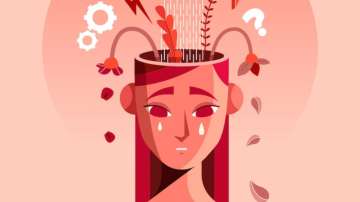Attention deficit hyperactivity disorder (ADHD) is a mental health condition characterized by hyperactivity, trouble focusing, and being easily distracted, among other symptoms. ADHD often causes disruptive behavior and cognitive patterns. This can impact every area of your life, including work, school, and relationships. The condition is usually treated with a combination of medication and therapy.
The latest research suggests that ADHD in women causes even greater emotional turmoil than in men. Despite widespread improvements in the diagnosis and treatment of ADHD, some professionals still may harbor the belief that attention deficit hyperactivity disorder is something that primarily affects boys and men, not girls and women. Consequently, women with ADHD are more likely than men to go undiagnosed, and less likely to receive appropriate treatment.
Girls with ADHD tend to try harder than their male counterparts to compensate for and cover up symptoms. To keep up their grades, girls are often more willing to put in extra hours of studying and to ask their parents for help. Girls are more likely to be 'people pleasers', doing all they can to fit in, even when they know they are different. Recent studies suggest that when women don’t get the help they need, it can lead to significant damage to their physical and mental health. If left untreated, adults with the condition can experience difficulties in keeping jobs or relationships and are at an increased risk of experiencing depression or anxiety.
Some of the common signs of ADHD
- Inability to stay focused on a single task
- Difficulty concentrating
- Forgetting appointments or promises
- Habitual lateness
- Not listening when people talk or forgetting what they say
According to the Centers for Disease Control and Prevention (CDC), ADHD is a neurodevelopmental disorder. In children, symptoms may include a lack of attentiveness, daydreaming, or impulsive behavior. It's not entirely clear what causes ADHD, but it may be linked to genetics, certain environmental factors (such as lead exposure), or other causes.
Depression and anxiety often accompany ADHD, as difficulty with executive brain functions can trigger both. They can also occur due to ADHD’s impacts on our quality of life, as it interferes with professional and personal obligations.
Disclaimer: Tips and suggestions mentioned in the article are for general information purposes only and should not be taken as professional medical advice. Please consult a doctor before starting any fitness regime or medical advice.
Also Read: What is Pulmonary fibrosis? Know its causes, symptoms and cure
Also Read: Keep your heart healthy; don't ignore these signs of blood clot in your arteries
